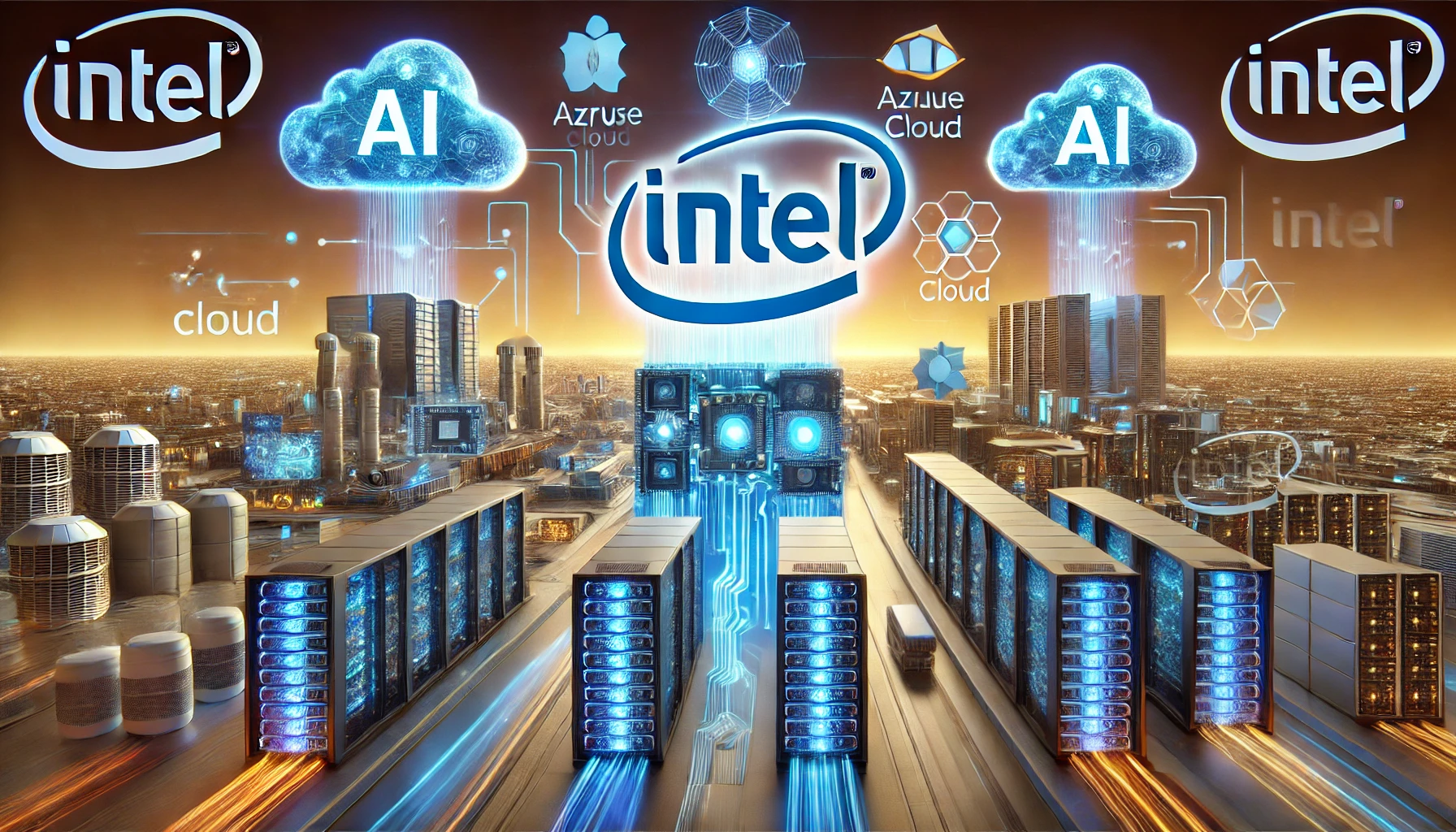
Intel’s AI and Cloud Strategy: Can it Compete with AWS, Azure, and Google Cloud?
Intel, traditionally known for its dominance in the semiconductor industry, is venturing deeper into cloud computing and artificial intelligence (AI) to carve out a competitive edge against the cloud giants — Amazon Web Services (AWS), Microsoft Azure, and Google Cloud. As AI-powered cloud services continue to expand, Intel aims to integrate its hardware expertise with advanced AI capabilities to offer something distinct. Here’s how Intel’s cloud and AI initiatives are evolving and what this means for the competition.
1. Intel’s Cloud Vision: Building AI-Powered Data Centers
Intel’s expansion into the cloud is rooted in its powerful semiconductor technology. Unlike traditional cloud service providers like AWS or Azure, which focus on building large-scale cloud infrastructure, Intel is focusing on building AI-optimized hardware that can run advanced cloud services. Their goal is to create data centers powered by AI at both the infrastructure and application levels.
With AI-driven Xeon processors, Intel aims to redefine the efficiency and scalability of data centers, allowing businesses to run AI workloads with lower latency and higher performance. Intel’s cloud vision is about enabling AI everywhere, ensuring their chips can process massive amounts of data more efficiently.
2. Project Aurora: The AI-Cloud Convergence
One of Intel’s significant undertakings is Project Aurora, which seeks to deliver AI-accelerated cloud services using Intel hardware. Aurora will support high-performance computing (HPC) and machine learning workloads, allowing businesses to access cutting-edge AI infrastructure.
Aurora is aimed at competing with AI-driven cloud services provided by AWS, Google Cloud’s Tensor Processing Units (TPUs), and Azure’s AI capabilities. By focusing on AI-first solutions, Intel is betting that its approach will resonate with companies looking for specialized AI cloud services rather than general-purpose cloud offerings.
3. AI and Custom Silicon: The Key Differentiator
Intel’s expertise in custom silicon and AI chips could be its differentiating factor. The company is building AI chips designed specifically for the cloud. With solutions like Intel Nervana NNP (Neural Network Processors) and its acquisition of HABANA Labs, Intel is equipping the cloud with specialized processors for deep learning and AI inference tasks.
These AI accelerators will enable cloud providers and enterprises to leverage more efficient, AI-optimized hardware for specific tasks like natural language processing (NLP), computer vision, and AI model training. Unlike AWS’s Graviton chips or Google’s TPUs, Intel’s custom silicon could provide businesses with a more flexible and customizable AI infrastructure.
4. Strategic Partnerships and Hybrid Cloud Approach
Intel’s strategy also includes partnerships with major cloud providers like AWS, Microsoft Azure, and Google Cloud to integrate its hardware solutions into their platforms. By positioning itself as a cloud enabler, Intel is able to provide its AI processors and chips to these providers while building an ecosystem that runs on Intel-powered hardware.
At the same time, Intel is pushing its hybrid cloud solutions, allowing businesses to combine public and private cloud infrastructures with Intel’s AI-powered hardware. This hybrid approach could be appealing to enterprises seeking AI capabilities without fully relying on public cloud providers.
5. Competing with the Giants: Can Intel Disrupt the Cloud Space?
While AWS, Azure, and Google Cloud have a substantial lead in cloud infrastructure, Intel’s unique position as a hardware and AI expert allows it to focus on creating tailored solutions for specific AI needs. By leveraging its cutting-edge processors, AI chips, and hybrid cloud strategies, Intel could become a significant player in the AI-driven cloud space.
However, it’s important to note that AWS, Azure, and Google Cloud are heavily investing in AI themselves, from specialized AI services to their own custom hardware, like Google’s TPUs. Intel will have to focus on differentiating itself by delivering superior performance for AI workloads, cost-effective solutions, and innovations in custom AI silicon.
Conclusion: A New Player in the AI Cloud Battlefield?
Intel’s entry into the AI cloud landscape is an ambitious one. Its focus on AI-first solutions and advanced processors for cloud services differentiates it from traditional cloud providers. While AWS, Azure, and Google Cloud dominate the general-purpose cloud market, Intel’s specialized AI-driven cloud strategy could capture a niche market. As AI continues to reshape the cloud industry, Intel’s future in this space will depend on its ability to innovate and leverage its semiconductor strength in an increasingly AI-centric world.
By merging AI and cloud technologies, Intel is positioning itself not just as a hardware provider but as a key player in the next era of cloud computing, one where AI and data are at the heart of everything.



